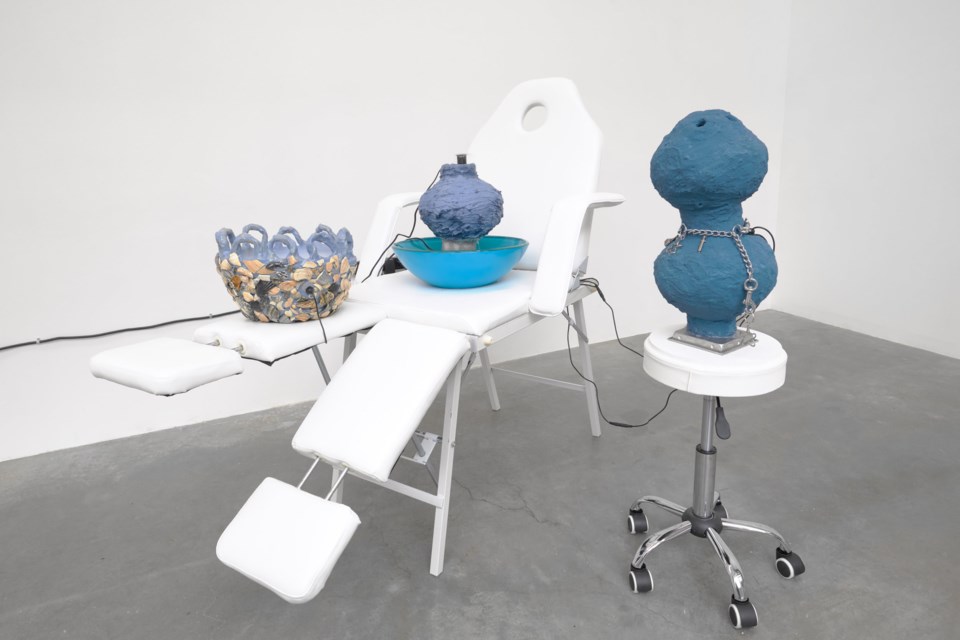A new exhibition at Brooklyn's UrbanGlass has artist Carly Mandel reclaiming the traumas brought on by privatized healthcare and the consumer wellness industry, while looking at how people and objects are medicalized in late capitalism.
The gallery installation, curated by Kerry Doran, includes new ceramic, metal and glass pieces that borrow forms or represent massage devices, grab bars, jump ropes, hula hoops, medical ID bracelets and sharp containers referencing Mandel's personal stories of physical therapies and disabilities.
Drawing on her personal experiences, Mandel's work focuses on how survival is represented through commodities and how people are now unable to thrive independent of their consumption, gallery UrbanGlass said in a statement.
Founded in 1977 UrbanGlass, located at 647 Fulton Street in Brooklyn, was the first artist-access glass center in the United States and is now the largest with 17,000 square feet of state-of-the-art studio space. Its mission is to foster experimentation and advance the use and critical understanding of glass as a creative medium.
Brooklyn-based artist Mandel has had her sculptures and videos shown nationally and internationally, most recently, in a solo exhibition at Hamtramck Ceramck in Detroit.
Mandel was a 2017 recipient of the Emerging Artist Grant from the Kennedy Center in Washington, D.C., and a 2019 recipient of a Visiting Artist Fellowship from UrbanGlass.
Curator Kerry Doran is an art historian, critic, and curator, with projects based out of Buenos Aires, Hong Kong, and New York.
The works in the new exhibition look critically at how the rise of "self-care" industry has happened alongside the contemporary "healthcare" debate.
"As state-subsidized healthcare in the United States is threatened, wellness products and experiences burgeon; with sound baths, meditation retreats, Impossible meat products, or the latest Goop trends being among the most au courant," the gallery said of the exhibition.
"Those who are able-bodied or unaffected by chronic illness are those who are more likely to be privately insured by their employers, while at the same time having more capital to spend on wellness."
Mandel's work explores how wellness products operate from the mythology that earning more, and consuming more, will be the key to unlocking one's true potential, the gallery says, and how that ethos shames those who are unable to participate in consumer-driven wellness culture. The exhibition opens on September 7 and runs through January 7.




